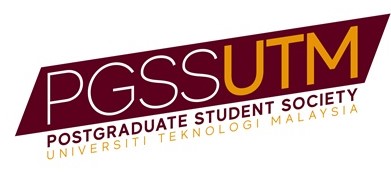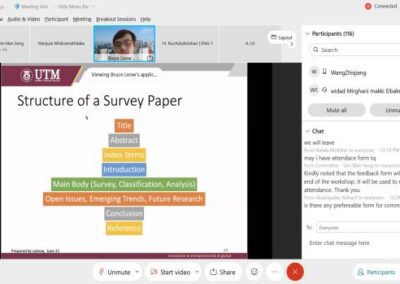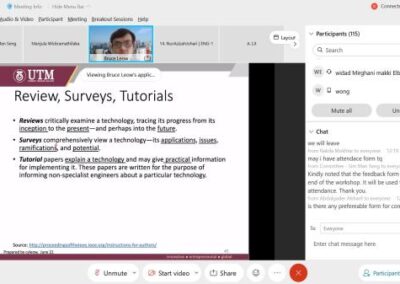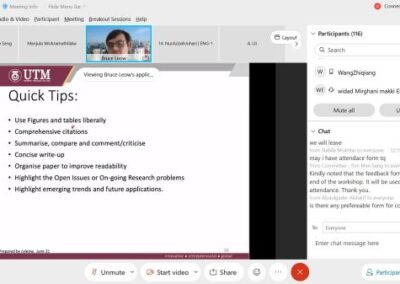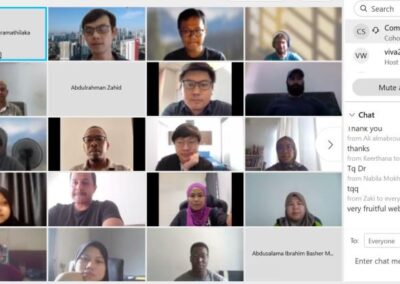
On 15th June, PGSS SKE had organized online structured course ‘How to Publish My First High-Impact Paper’. Speaker for this course is Assoc. Prof. Dr. Leow Chee Yen, Lecturer School of Electrical Engineering.
One of the most important parts of professionalization is being able to publish your research. Publishing provides a communication channel for researchers to make research findings visible and useful to others. However, despite its ubiquitous presence, the publication process remains both daunting and confusing to some postgraduate students and newer faculty members. In this workshops participants will able to:
- Learn the strategies and tips to write a high impact journal paper
- Know how to choose a publisher to publish a journal
The course began at 10.30 am with an introduction of the speaker, covering his PhD journey, research interests, and journal publication history. This course is organized into four sections, each lasting 30 minutes and providing time for questions and answers. The first section introduces of high-impact publication and focuses on how to produce good publications, followed by Strategy and tips for journal publication by selecting the right journal. Following that, the speaker discussed about the submission and review process, example publishing at IEEE Trans. Information Technology and Biomedicine which took 60 days up to 3 months to complete. After that, the speaker explained about why editors or reviewers reject papers and what editors are looking for. Finally, the speaker shared some of the tools and resources that he uses to publish, such as Journal Citation Reports, IEEE Author Center, IEEE publication recommender and also IEEE Explore. The seminar ended about 1.00pm when the last question from the participants was answered and the group photo was taken. Overall, the workshop went well, and attendees actively asked questions with over 20 questions received. The majority of the comments from participants are positive, with good knowledge sharing and clear explanations while some participants ask for more time in the session.
